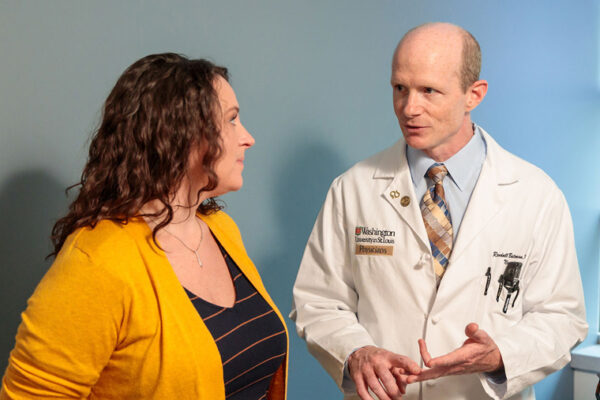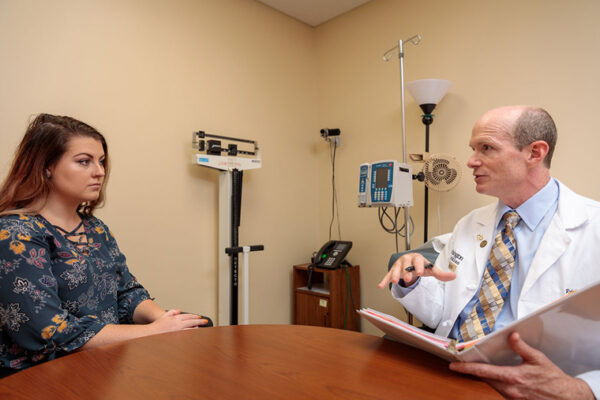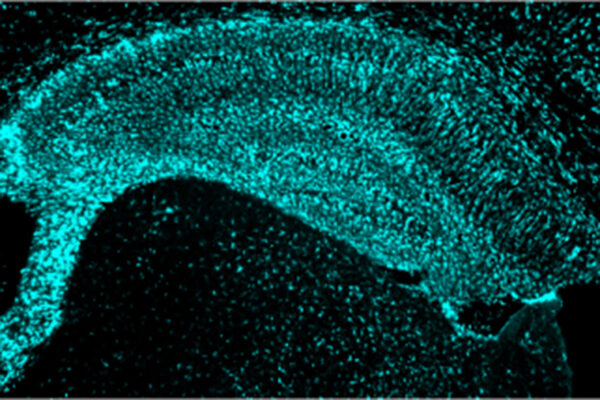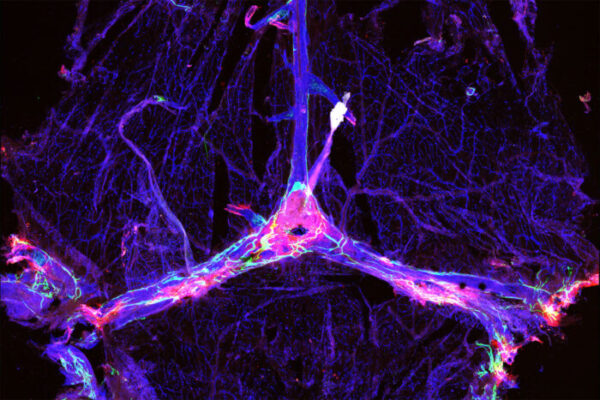International Alzheimer’s clinical trial to test two drugs in combination
The Dominantly Inherited Alzheimer Network Trials Unit (DIAN-TU) at Washington University School of Medicine has announced that it will be targeting two key Alzheimer’s proteins — amyloid and tau — as part of its Tau Next Generation Alzheimer’s prevention trial.
Time until dementia symptoms appear can be estimated via brain scan
Researchers at Washington University School of Medicine have developed an approach to estimating when a person who is likely to develop Alzheimer’s disease, but has no cognitive symptoms, will start showing signs of Alzheimer’s dementia.
Yoo wins research grants
Andrew Yoo, associate professor of developmental biology at the School of Medicine, has received two research grants for work on Alzheimer’s disease and neurodegenerative pathways.
New Alzheimer’s treatment targets identified
A research team at Washington University School of Medicine has identified potential new treatment targets for Alzheimer’s disease, as well as existing drugs that have therapeutic potential against these targets.
Researcher receives NIH grant for Alzheimer’s study
Cyrus Raji, MD, PhD, assistant professor of radiology and of neurology at the School of Medicine, received a three-year $2.3 million grant from the National Institute on Aging of the National Institutes of Health (NIH) for his research titled “Neuroinflammation and Alzheimer’s Disease Imaging Biomarkers in Midlife Obesity.”
Investigational Alzheimer’s drug improves biomarkers of the disease
An investigational Alzheimer’s drug showed mixed results, reducing molecular markers of disease and curbing neurodegeneration, without demonstrating evidence of cognitive benefit, in a clinical trial led by School of Medicine researchers.
Protein linked to heart health, disease a potential therapeutic target for dementia
Researchers at Washington University School of Medicine have found that high levels of a normal protein associated with reduced heart disease also protect against Alzheimer’s-like damage in mice, opening up new approaches to slowing or stopping brain damage and cognitive decline in people with Alzheimer’s.
New tool activates deep brain neurons by combining ultrasound, genetics
A multidisciplinary team at Washington University led by Hong Chen has developed a new brain stimulation technique using focused ultrasound that is able to turn specific types of neurons in the brain on and off and precisely control motor activity without surgical device implantation.
WashU, Pitt awarded $10.7 million for Alzheimer’s disease research
A $10.7 million five-year grant will support a comprehensive study in which whole-genome sequencing will be used to address critical gaps in knowledge about Alzheimer’s disease. The project is led by researchers at Washington University School of Medicine and the University of Pittsburgh.
Draining brain’s debris enhances Alzheimer’s therapies in mice
New research in mice has shown that some investigational Alzheimer’s therapies are more effective when paired with a treatment geared toward improving drainage of fluid and debris from the brain, according to a study led by researchers at Washington University School of Medicine.
Older Stories








